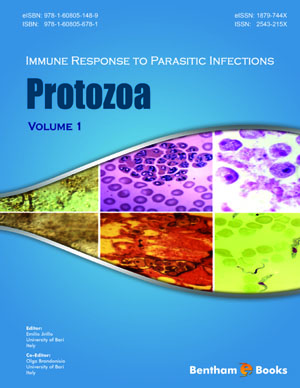Abstract
SHS investigation development is considered from the geographical and historical viewpoint. 3 stages are described. Within Stage 1 the work was carried out in the Department of the Institute of Chemical Physics in Chernogolovka where the scientific discovery had been made. At Stage 2 the interest to SHS arose in different cities and towns of the former USSR. Within Stage 3 SHS entered the international scene. Now SHS processes and products are being studied in more than 50 countries.
Abstract
Apoptosis play a crucial role in the interaction between hosts and parasites. Apoptotic response includes innate and adaptive immunities to restrict intracellular parasite replication and regulatory functions to modulate host immune responses. The obligate intracellular protozoan Toxoplasma gondii extensively modifies apoptosis of its own host cell or of uninfected bystander cells. Upon infection with T. gondii, apoptosis is triggered in T lymphocytes, macrophages and other leukocytes, thereby suppressing immune responses against the parasite. On the other hand, T. gondii inhibits hostcell apoptosis by direct or indirect mechanisms in the infected cells to facilitate parasite survival. The dual activity of T. gondii to both promote and inhibit apoptosis requires tight regulation to stabilize host and parasite interaction and establish toxoplasmosis. Here, molecular mechanisms behind the inhibition or induction of apoptosis by T. gondii infection and their pathogenesis are focused on.
Recommended Chapters
We recommend

Authors:Bentham Science Books


 Download PDF Flyer
Download PDF Flyer



